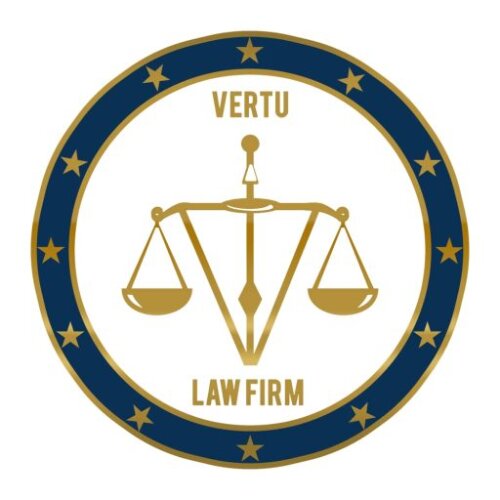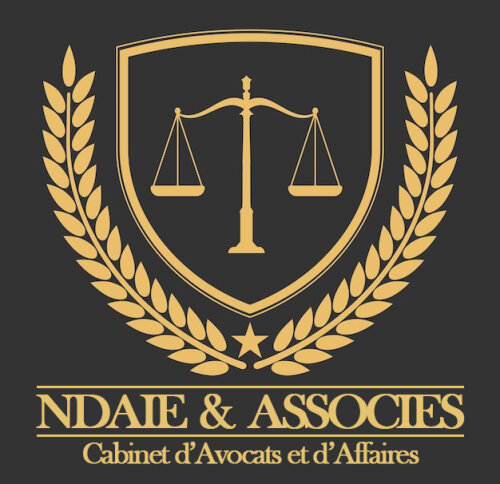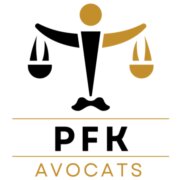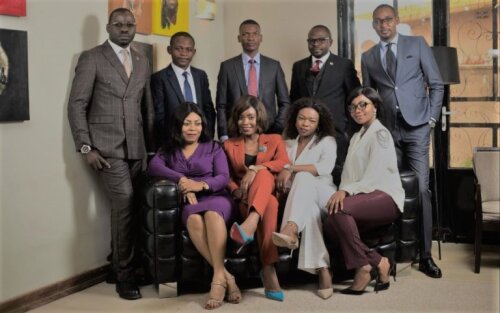Best Conveyancing Lawyers in Lubumbashi
Share your needs with us, get contacted by law firms.
Free. Takes 2 min.
Free Guide to Hiring a Real Estate Lawyer
List of the best lawyers in Lubumbashi, DR Congo
About Conveyancing Law in Lubumbashi, DR Congo
Conveyancing in Lubumbashi, DR Congo refers to the legal process of transferring ownership of a property, such as land, buildings, or other real estate, from one person or entity to another. This process is governed by local and national laws, and involves important steps such as verifying the legal title, preparing and signing contracts, obtaining relevant government approvals, and registering transactions at appropriate land registries. Whether you are buying, selling, or transferring property, understanding the conveyancing process is essential to ensure your interests are protected, and that the transaction is legally valid and enforceable.
Why You May Need a Lawyer
While some may view property transfers as simple, conveyancing in Lubumbashi often involves complex legal procedures and documentation. Here are common situations where legal assistance is critical:
- Purchasing or selling land or buildings
- Transferring property after inheritance or succession
- Resolving land disputes or clarifying unclear property boundaries
- Verifying property titles and ensuring there are no outstanding claims or encumbrances
- Drafting and reviewing sale or lease agreements
- Handling transactions for commercial real estate or business premises
- Complying with local zoning laws and land use regulations
- Assisting foreign nationals or companies in property acquisition
- Facilitating mortgage or loan arrangements involving real property
A lawyer can guide you through the legal requirements, help avoid costly mistakes, and act in your best interests during negotiations and documentation.
Local Laws Overview
Conveyancing in Lubumbashi, as in the rest of the Democratic Republic of Congo, is regulated primarily under the national Land Law (Loi sur le Régime Général des Biens). Key aspects include:
- The State is the original owner of all land; private persons and companies are granted usage rights (generally referred to as concessions), rather than absolute ownership.
- Property transfers must be formalized with a notarial deed and require approval from designated administrative authorities.
- Every property transaction needs to be registered at the local land registry for the transfer to be legally valid against third parties.
- There are specific requirements for the assessment and payment of transfer taxes, stamp duties, and government fees.
- Foreign nationals can acquire land usage rights but are subject to further restrictions and additional procedures.
- Land disputes are adjudicated by local courts with jurisdiction over property matters.
Because these procedures are detailed and strictly enforced, correctly following all steps is essential for a smooth and lawful conveyancing process.
Frequently Asked Questions
What is the first step in buying property in Lubumbashi?
The process begins with identifying the property and negotiating terms with the seller. After reaching agreement, it's crucial to conduct a title search at the local land registry to confirm ownership and check for any encumbrances before signing any contract.
Can foreigners own land in Lubumbashi?
Foreigners cannot own land outright but may be granted land usage rights, known as concessions. The process is subject to additional administrative approvals and requirements compared to local citizens.
Do I need to use a notary for property transactions?
Yes, all property transfer documents must be prepared or authenticated by a licensed notary in Lubumbashi to be legally valid.
How long does the conveyancing process take?
The timeframe can vary. In straightforward cases, it often takes between one and three months. Complex cases or those involving disputes or incomplete documentation may take longer.
What taxes or fees are involved in property transfers?
Buyers and sellers may be responsible for transfer taxes, stamp duties, notary fees, and land registration fees. The exact amounts depend on the property value and local regulations.
What happens if there are disputes about property boundaries?
Such disputes are first addressed at the local administrative level, often involving the land registry. If not resolved, the matter can be brought before Lubumbashi's competent court for land matters.
Is registering the property necessary after the transaction?
Yes, registration at the local land registry is essential for the transfer to be recognized against third parties and to enjoy full legal protection.
Can I buy property with an existing mortgage or encumbrance?
Yes, but you must ensure that any mortgages or legal claims are addressed before or during the transfer. Failure to do so may leave you liable for outstanding obligations.
How can I verify if a property has a clear title?
You should request a formal title search from the local land registry and review any documentation provided by the seller, ideally with the assistance of a qualified lawyer.
What should I do if I suspect a fraudulent property sale?
Do not proceed with the transaction. Consult a lawyer immediately, gather any evidence of fraud, and report the matter to the police or appropriate authorities in Lubumbashi.
Additional Resources
For further information or assistance regarding conveyancing in Lubumbashi, consider reaching out to the following resources:
- The Land Registry Office (Conservation des Titres Immobiliers) in Lubumbashi
- The Lubumbashi Bar Association (Barreau de Lubumbashi) which provides a directory of licensed lawyers
- The Ministry of Urban Planning and Habitat (Ministère de l’Urbanisme et Habitat) for regulations and guidelines
- Local notary offices for authenticated document services
- Court of First Instance in Lubumbashi for dispute resolution and legal proceedings
Next Steps
If you are considering a property transaction or facing a conveyancing issue in Lubumbashi, follow these steps:
- Gather all available documentation related to the property, including current titles, maps, and seller information
- Contact a qualified conveyancing lawyer or notary in Lubumbashi to discuss your needs and review your documents
- Request a title search and ensure there are no unresolved claims on the property
- Engage your lawyer or notary to prepare and review all legal documents before signing
- Attend all necessary meetings at the land registry and complete the registration process
- Keep records of all transactions, receipts, and official documents
Prompt legal guidance can help avoid common pitfalls and ensure your property transaction is secure and fully compliant with Lubumbashi’s conveyancing laws.
Lawzana helps you find the best lawyers and law firms in Lubumbashi through a curated and pre-screened list of qualified legal professionals. Our platform offers rankings and detailed profiles of attorneys and law firms, allowing you to compare based on practice areas, including Conveyancing, experience, and client feedback.
Each profile includes a description of the firm's areas of practice, client reviews, team members and partners, year of establishment, spoken languages, office locations, contact information, social media presence, and any published articles or resources. Most firms on our platform speak English and are experienced in both local and international legal matters.
Get a quote from top-rated law firms in Lubumbashi, DR Congo — quickly, securely, and without unnecessary hassle.
Disclaimer:
The information provided on this page is for general informational purposes only and does not constitute legal advice. While we strive to ensure the accuracy and relevance of the content, legal information may change over time, and interpretations of the law can vary. You should always consult with a qualified legal professional for advice specific to your situation.
We disclaim all liability for actions taken or not taken based on the content of this page. If you believe any information is incorrect or outdated, please contact us, and we will review and update it where appropriate.












